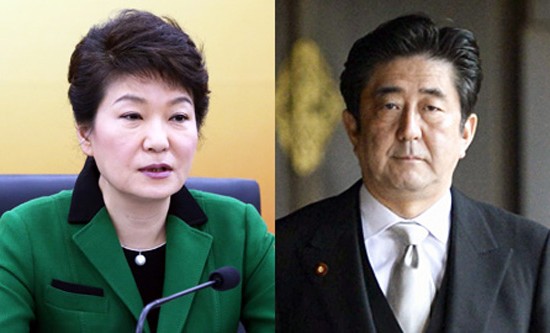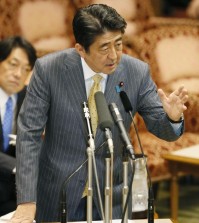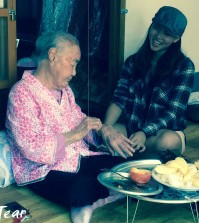- California Assembly OKs highest minimum wage in nation
- S. Korea unveils first graphic cigarette warnings
- US joins with South Korea, Japan in bid to deter North Korea
- LPGA golfer Chun In-gee finally back in action
- S. Korea won’t be top seed in final World Cup qualification round
- US men’s soccer misses 2nd straight Olympics
- US back on track in qualifying with 4-0 win over Guatemala
- High-intensity workout injuries spawn cottage industry
- CDC expands range of Zika mosquitoes into parts of Northeast
- Who knew? ‘The Walking Dead’ is helping families connect
Park Geun-hye vs. Shinzo Abe: Leaders hard to mix
By Kang Seung-woo
Japanese Prime Minister Shinzo Abe all but squandered the chance to meet with President Park Geun-hye by visiting the Yasukuni Shrine on Thursday, analysts said.
The strained bilateral ties between the two leaders, which had been dented by territorial and historical issues, will inevitably deteriorate further during their terms, they said.
“Park emphasizes principles, while Abe is ideology oriented,” said Jin Chang-soo, director of Japan Studies at the private Sejong Institute. “Ideology cannot be changeable because it is based on belief, and principles can only be achieved when others follows through along the same line. Given this, it’s hard for the two leaders to mix well.”
Abe’s visit to the shrine housing 14 Class A war criminals from World War II is primarily aimed at regaining his public support, said Doh See-hwan, a research fellow at the state-run Northeast Asian History Foundation.
“As Abenomics ― a three-pronged plan of monetary stimulus, fiscal stimulus and structural reform ― does not live up to expectations, and Japan is losing its G2 status to China, Abe faces sharp drop in public approval and the hawkish prime minister is depending on his support base of right-wing nationalists,” he said.
“As Abe needs to do something agreeable to the conservative right-wing as part of pumping up his approval rating, he paid homage to the war dead at the shrine. The Yasukuni is a symbol of the conservative right-wing.”
However, Doh said that beyond approval ratings, the visit is a sign of Japan’s drive to escape from the postwar regime, in other words, a return to militarism.
“Eventually, Abe is calling for Japan to return to the prewar regime,” he said.
“However, its pacifist Constitution is the biggest stumbling block in Japan’s departure from the postwar regime, so Abe is attempting to revise the Constitution, which bans the use of force in settling international disputes and permits the country to maintain military forces only for the defense of Japan.”
He added that as part of overturning the Constitution, the prime minister is pushing for the right of collective self-defense, which will expand the influence of the nation’s armed forces.
Angered by Abe’s backward-looking, distorted view of history, President Park has continuously asked him to issue a formal apology for atrocities committed under Japanese rule.
Jin said, “Although she may have known what Abe would do to some extent, Park stuck by her principles.”
Doh added that Park’s propensity to persist on principle was a better option than extending her hand to Abe in advance.
“Some say that Park should have shown a conciliatory gesture to Abe first, but look at the Japanese media, just delivering their government’s messages. Would they tell the truth?” he said.
“Rather, they would politically exploit it, which would have dealt a hard blow to Park.”


















Jason Lee
December 30, 2013 at 10:41 AM
Question?
Should President Park’s picture be on the left side?